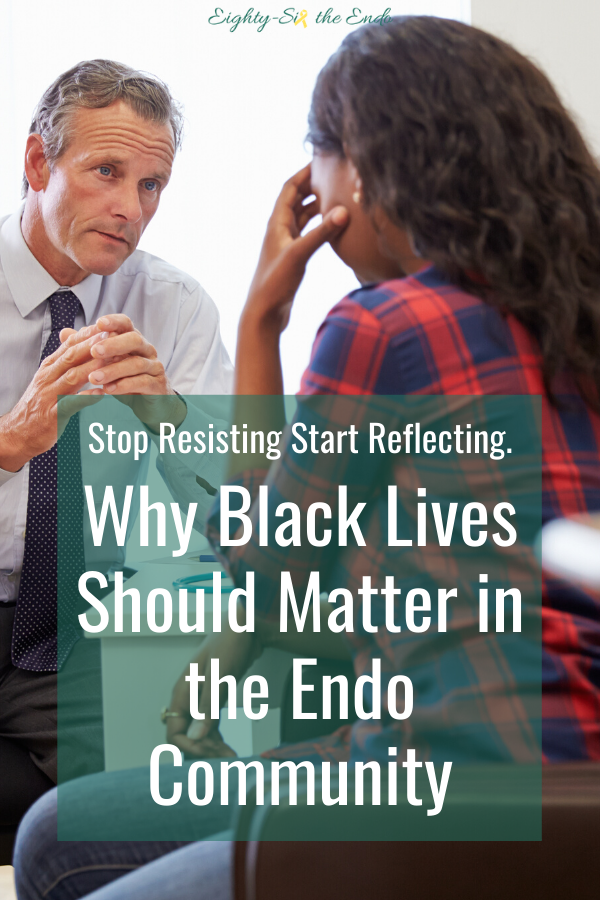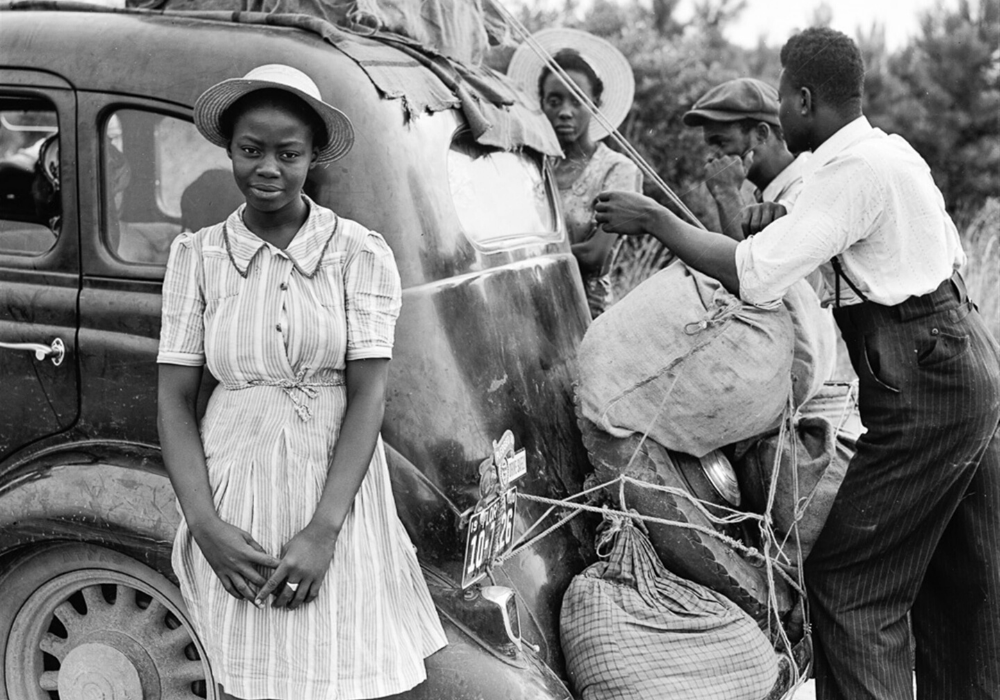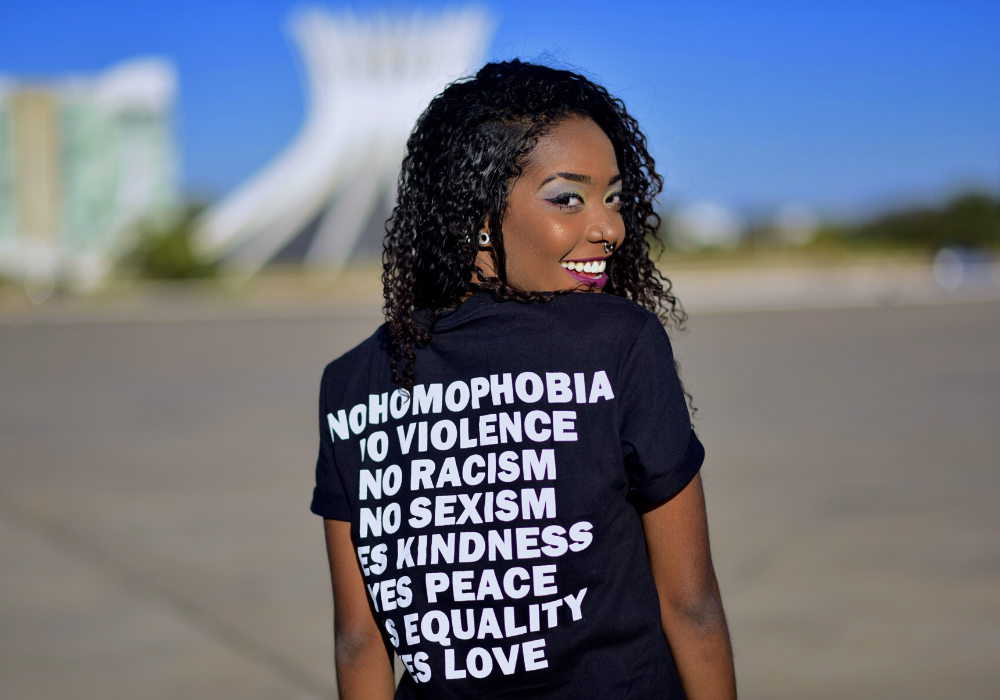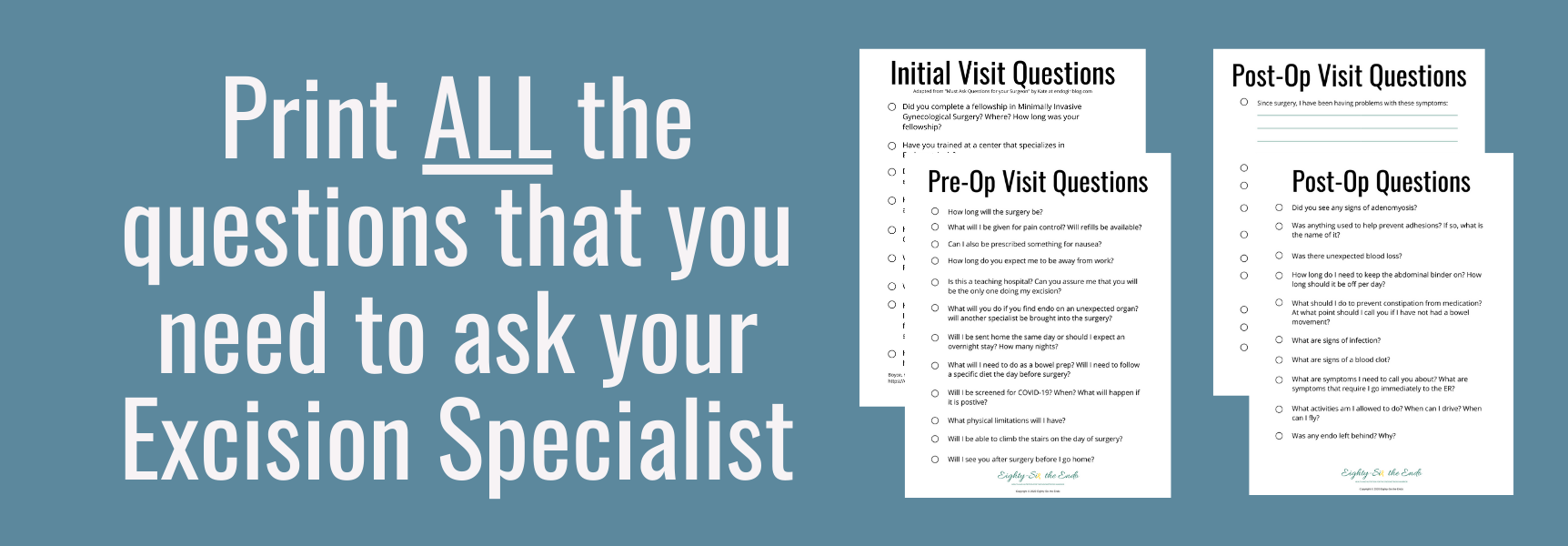BLACK. LIVES. MATTER. For many, it is a rallying call for equity, justice, visibility, and fair treatment. Others view it as a means for more division in already tumultuous times. That is simply not true. As a Black woman battling Endometriosis for over 12 years, I know all too well the racial bias and discrimination that has long been a painful reality for many African Americans. Unfortunately, experiencing these disparities in the world of Endometriosis is no different. Not surprising since medical bias against Black people dates back, literally, hundreds of years.

History of Black Lives and Endometriosis
During the 1800’s, J Marian Sims, considered by some to be the father of modern gynecology, is known to have conducted horrific experiments on Black women without anesthesia, in part, because he “…understood enslaved women not to have the same pain threshold as white women.” 1 By the 1950’s, that prevailing mindset was further ingrained in the medical community by a 1951 study which reported that endometriosis “was nearly non-existent among African American patients, which suggests there was a constitutional racial factor.”2
At the time, Endometriosis was explicitly proclaimed to be a disease of “affluent, high-achieving [white] women with private health insurance who have delayed marrying and childbearing”, and touted as being “uncommon in Black women.”3 For decades, Endometriosis was often called a ‘rich white woman’s disease’.

A Step Forward for Black Lives in the Endo Community
It wasn’t until 1976, when an African American gynecologist named Donald L. Chatmon challenged the ’51 study by noting that while 1 in 5 of his African American patients had evidence of Endometriosis, 40% of these women had been misdiagnosed with pelvic inflammatory disease… “due to the myth that non-whites were immune to the disease, and that African American women were more promiscuous.”4
In my own Endometriosis journey, I can vividly recall a doctor incessantly trying to push the narrative of PID as being the source of my pain by continuously asking me how many sexual partners I currently had – despite me repeatedly telling him that I was practicing abstinence and in fact did not have any sexual partners at the time. It was an incredibly degrading and frustrating experience to be sure.
A Step Backward for Black Lives in the Endo Community
I often find within the Endometriosis community that whenever issues of racial disparity or discrimination are attempted to be discussed by Black women, we are immediately met with viscerally strong resistance. Posts are often deleted or we are met with cries of: ‘why does everything have to be about race?’ or ‘we all get treated badly’ or ‘we don’t need any more division’ or ‘this disease doesn’t see color.’ We are told this in spaces that are supposed to be deemed safe and invoke a spirit of family or community. And while it is true that Endometriosis does not see color, it is also true that many of the doctors and medical professionals tasked with helping us to treat and manage this disease – do.

Pushback from the Endo Community
In my experience, it seems as if this pushback occurs primarily for two reasons. First, some people, particularly white people, may feel that if they acknowledge or give credence to the fact that racial disparities and biases actually exist, this somehow means we are accusing them of being complicit in perpetrating these aggressions and that we are somehow deeming them automatic racists. We are not.
The second reason is because some people perceive that by amplifying the Black experience specifically, we are diminishing the experiences of others. Again, we are not. We are fighting for our voices to be heard alongside, and in addition to the other Endo voices in the community. We are attempting to bring to the forefront the additional challenges that Black patients face when fighting against a disease that is already heavily dismissed by the medical community at large.

Why Endo Black Lives Matter
One of the biggest misconceptions about Black Lives Matter, is that when we say it, we are implying that Black lives matter MORE or that Black lives are BETTER or that other lives are less than or not as important as Black lives. Once again, we are not. What we are saying is that in the midst of all of the systemic oppression, racism, prejudice and biases that we face in the country on a daily basis, we are fighting to be seen, to be heard, to receive the same care, concern and compassion as our white counterparts.
We are not seeking to exclude anyone, but rather to have Black lives INCLUDED in the systems, structures and spaces in the world that for so long have told us that we do not belong; that are still telling us that we do not belong. It is to affirm that we matter! Not more than, not better than, but that we simply, in fact, matter; just like everyone else.
There is a vast difference in being dismissed, misdiagnosed or receiving less than adequate care because you have and undereducated or ill equipped doctor versus having a doctor who believes that Black people have less sensitive nerve endings; that we have thicker skin than white people do; that we have inherent predisposition toward promiscuity and drug abuse; that we are genetically designed to withstand more pain than white people.

Become An Ally
If you really want all lives to matter in the Endo community, rather than reject or resist the experiences of Black patients because it makes you uncomfortable, pause. Take a moment to listen, reflect, and actually receive what is being said. Rather than be quick to dismiss, research racial disparities in healthcare and specifically within the realm of Endometriosis. The facts are out there. Educate yourself. Acknowledge the fact that these disparities exist. Acknowledgement is the first step to Allyship. Reflect on whether you or those around you have engaged in thoughts or behaviors that perpetuate these biases. If so, call them out. Have the difficult conversation. Hold them accountable. Hold yourself accountable. Make an actionable commitment toward personal correction.
While it is true that we are all fighting the same disease, we are not all fighting the same fight. For some of us, the fight is much more difficult; simply because we are Black. Unless we come together to acknowledge and validate the different and specific experiences of ALL the voices in the Endo community, we will continue to lose steps in the forward movement toward beating this disease and gaining healthcare equity for us all. Because the truth is, the uncomfortable, unadulterated truth is that, all lives cannot matter until Black lives do.
About the Author

Michelle N. Johnson began her journey as a health and wellness advocate as a licensed massage therapist. After being diagnosed with Stage 4 Endometriosis and navigating unchartered territory where there are no real answers, she founded the Fighting Fiercely© Endometriosis Awareness movement in 2012.
Following the success of the Fighting Fiercely movement, she authored Fighting Fiercely: Unveiling the Unknown about Endometriosis in 2015. In addition to being a patient ambassador for the Chronic Disease Coalition and 2020 Fellow with the ADA25 Advancing Leadership Institute, Johnson is also a speaker, educator, and endometriosis advocate who has dedicated her life to educating, enlightening, and empowering suffers, survivors, friends, and family who have all been affected by this disease.
You can follow Michelle on Instagram @fightfierceendo or on her website www.fightingfiercely.com
- https://www.today.com/health/racism-gynecology-dr-james-marion-sims-t185269?fbclid=IwAR2FUAARFBwidPPZSxKAjhy4GlC06aRsNemyQkL_Uicp2gUEPZQ2adGNq0c
- https://endometriosisnews.com/2019/02/14/patient-centered-approach-may-help-overcome-historical-racial-bias-in-endometriosis-care-study-suggests/
- https://obgyn.onlinelibrary.wiley.com/doi/full/10.1111/1471-0528.15805
- https://endometriosisnews.com/2019/02/14/patient-centered-approach-may-help-overcome-historical-racial-bias-in-endometriosis-care-study-suggests/


